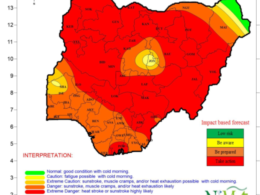
The Economic and Financial Crimes Commission (EFCC) has disclosed that approximately 70 percent of financial crimes in the country are connected to banks.
This disclosure came during the address by the Chairman of the EFCC, Ola Olukoyede, at the 2023 Annual Retreat and General Meeting of the Association of Chief Audit Executives of Banks in Nigeria held in Abuja. Olukoyede highlighted the alarming trend of fraudulent activities within the banking industry, citing it as a significant concern for the commission.
Represented by EFCC’s Director of Internal Audit, Idowu Apejoye, Olukoyede stressed the importance of collaborative efforts among relevant authorities and industry professionals, particularly audit executives, to proactively address and combat fraudulent activities within the banking sector.
“Broadly speaking, banking fraud in Nigeria is both inside and outside related,” remarked Olukoyede. He elaborated that inside-related fraud encompasses various illicit practices such as the outright selling of customers’ deposits, unauthorized loan facilities, forgery, and other forms of criminal activities perpetrated by individuals within the banking system. On the other hand, outside-related fraud includes hacking, ATM fraud, conspiracy, and other similar activities. Olukoyede also highlighted the alarming scenario when individuals from within and outside collaborate in perpetrating fraudulent acts.
The revelation by the EFCC underscores the pervasive nature of financial crimes within Nigeria’s banking sector, raising concerns about the integrity and security of the financial system. With a significant portion of financial fraud being linked to banks, there is a pressing need for heightened vigilance and proactive measures to safeguard against such illicit activities.
In recent years, Nigeria has witnessed a surge in financial fraud cases, ranging from sophisticated cybercrimes to traditional forms of fraudulent schemes. These crimes not only pose significant financial losses to individuals and businesses but also undermine trust and confidence in the banking sector, thereby affecting the overall economy.
The EFCC’s call for collaborative action underscores the importance of a concerted effort by all stakeholders, including regulatory authorities, financial institutions, law enforcement agencies, and industry professionals, to address the root causes of financial crimes and enhance the resilience of the banking sector.
In response to the growing threat of financial fraud, Nigerian banks have increasingly invested in technology-driven solutions and strengthened their internal control mechanisms to detect and prevent fraudulent activities. However, the evolving nature of financial crimes necessitates continuous adaptation and innovation to stay ahead of fraudsters.
The EFCC’s commitment to combating financial crimes in collaboration with other stakeholders reflects the government’s determination to ensure a secure and transparent financial system that fosters economic growth and development. By working together, stakeholders can effectively tackle the scourge of financial fraud and uphold the integrity of Nigeria’s banking sector.










Join our Channel...